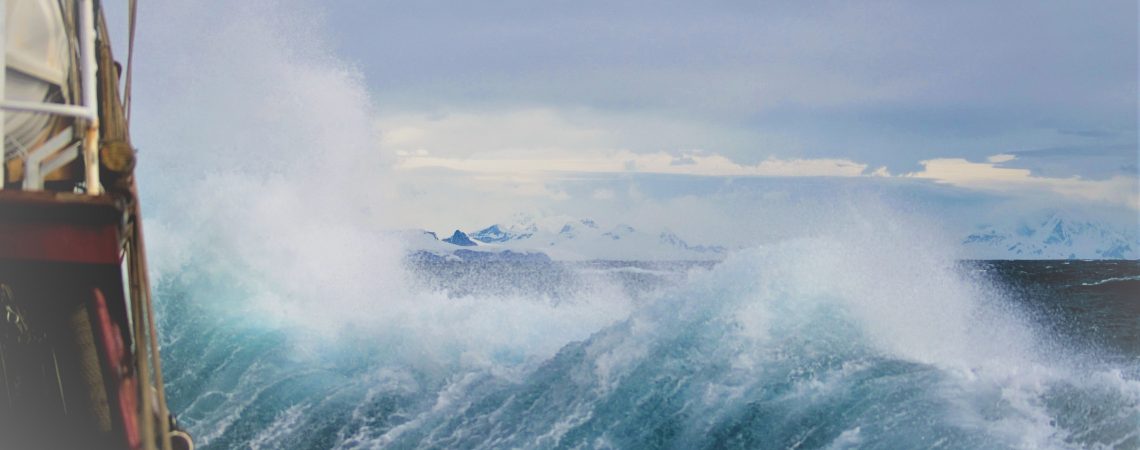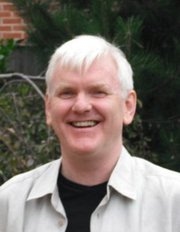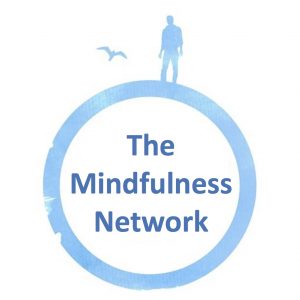
~ Written by Ken Lunn, Chair of Trustees for the Mindfulness Network ~
This blog post is part of a series called ‘Mindfulness Online’ to help give you some insight into an online event with the Mindfulness Network.
“Had I been any god of power, I would
Have sunk the sea within the earth or ere
It should the good ship so have swallowed, and
The fraughting souls within her.”– Miranda, The Tempest
An aspect of technology that arguably has the most impact on lives is how it changes the way we communicate. The wheel, ships, steam locomotives, cars and aeroplanes all extended the reach of people and furthered communication. Other technologies, like paper, writing, the printing press, newspapers, radio and television all transformed our concept of knowledge and mean that we can have some connection with previous generations in ways unfathomable by our early ancestors.
As mindfulness teachers one of our primary roles is creating better connection. Awareness itself is about connection, bringing our consciousness into aspects of our lives that we may not otherwise have noticed. A key facilitator of that is connection with others, which enables us to understand better our common humanity and to develop our compassion for self and others. Mindfulness too could be thought of as a form of communication technology, developing our ability to be more fully aware and respond.
The pandemic provides us with a set of challenges on communication. No longer can we travel with the freedom we have grown to assume. Sitting in groups can feel threatening now, rather than comforting. Our focus of many conversations has switched largely to the issues that we all face, and the drama and alarm that this triggers.
As Alison pointed out in her blog post, the Mindfulness Network (MN) has had to respond quickly to the challenges of the pandemic. Mindfulness has traditionally been taught in groups, and all our training and retreats were based on the assumption that people could travel and mix freely. All this changed suddenly. Either we ceased operating or found other ways.
From its inception the MN has not had a physical home. As it has grown, we have found ways of operating that still do not need a physical office. The teams that form the network – staff, trainers, retreat leads and supervisors – have managed to operate without regularly being in the same place. The groundwork for operating virtual rather than physical training was already in place.
Already the MN relied on a range of information technologies. Bookings are made through a system known as NED that runs in “the cloud”, we reach out with our websites and social media, we use cloud-based accounting systems and we have various back office support systems that enable us to work together. Staff only meet about once a year as a group, but do so regularly on Zoom, and our trainers and supervisors meet in-person only once or twice a year. Most supervision takes place online or over the phone. Our collaboration with Bangor University is all handled over online meetings. So, as we shifted to using some of these technologies for training and retreats it was not a steep learning curve on the technologies themselves, rather a learning on how to apply them.
Within a short space of time most of our training and some of our retreats moved online. We took what we knew and applied it. A community that otherwise would have been reluctant to make such a radical switch had little choice. The MN itself had no choice – it was a case of adapt to survive.
“Oh brave new world that has such people in’t” cries Miranda in The Tempest when she first sees the shipwrecked visitors to the strange island where she was marooned with her father Prospero, Caliban and Ariel. Her perception of the world was changed by one momentous event, and so was her future. Similarly, our perception of the world is changing dramatically in response to the pandemic.
Maritime metaphors feel appropriate right now. The pandemic storm thrust the MN ship onto the rocks. Somehow, we stayed afloat, but there was a large hole in the hull and our sails were ragged. We needed to move off the rocks, make repairs and set a steady if tentative course. The ship is reasonably watertight now, and the sails are being repaired. On one recent course someone said “no sailor ever learnt by sailing calm waters”, and certainly the we have learnt a great deal in the last nine months about business, about technology, and not least about ourselves and our community.
So now we must chart our course over the coming months and years. We know a few things that we did not before. Our training and retreats can be delivered effectively without meeting in rooms and travelling great distances. The technology we use has been hurriedly applied, but we think we can build on that and provide something more supportive and comprehensive.
Looking ahead, we are now venturing on a new project to explore the use of online learning environments. We have chosen the Moodle platform for a variety of reasons, and over the summer we successfully trialled a simple version of that to support some of our training. From 2021, this platform will become our new ‘Community’. We see this as more than just a way of sharing materials; there are opportunities to develop better communities, connect our participants, enable group connection before and after our events, enable greater sharing of resources, provide for more independent learning, and improve many of our established services. We also see this as an important opportunity to explore the pedagogy of mindfulness training and explore the best ways of training with whatever processes and technologies we can adopt. This project brings together a number of the themes and aspirations we have had over the years.
The pandemic will have lasting change, not just for the mindfulness community but for society as a whole. Perhaps as we recognise how much air travel is harmful then our shabby seaside resorts will recover some of their former glory. It seems likely that our education system will be pushed to reform and maybe become more accessible. Maybe our politics and economics will change too to put human needs and wellbeing more firmly at the centre of the agenda.
In this brave new world, we should not ignore the value of what we had before. In-person teaching will continue to have an important and prominent role in our training, but we are finding new ways of working that can be as effective and sometimes more so. We need to build on success, not replace it.
As the tempest subsides, to echo Miranda, will we realise “How beauteous mankind is”? As well as the tragedy, there has been a great deal to be thankful for in recent months. Is it not part of the essence of mindfulness that we turn towards our difficulties and see them as they are rather than through a veil of fear? So we end with a quote from Prospero:
“I find my zenith doth depend upon
A most auspicious star, whose influence
If now I court not but omit, my fortunes
Will ever after droop.”
So far, we have managed to respond to the challenge effectively, with due thanks to all involved, most especially our participants.
Now we look forward to navigating the next stage of this odyssey…






One comment on “Online Technology: Oh Brave New World”
Kate Goocj
December 18, 2020 at 2:17 pmThank you Ken!